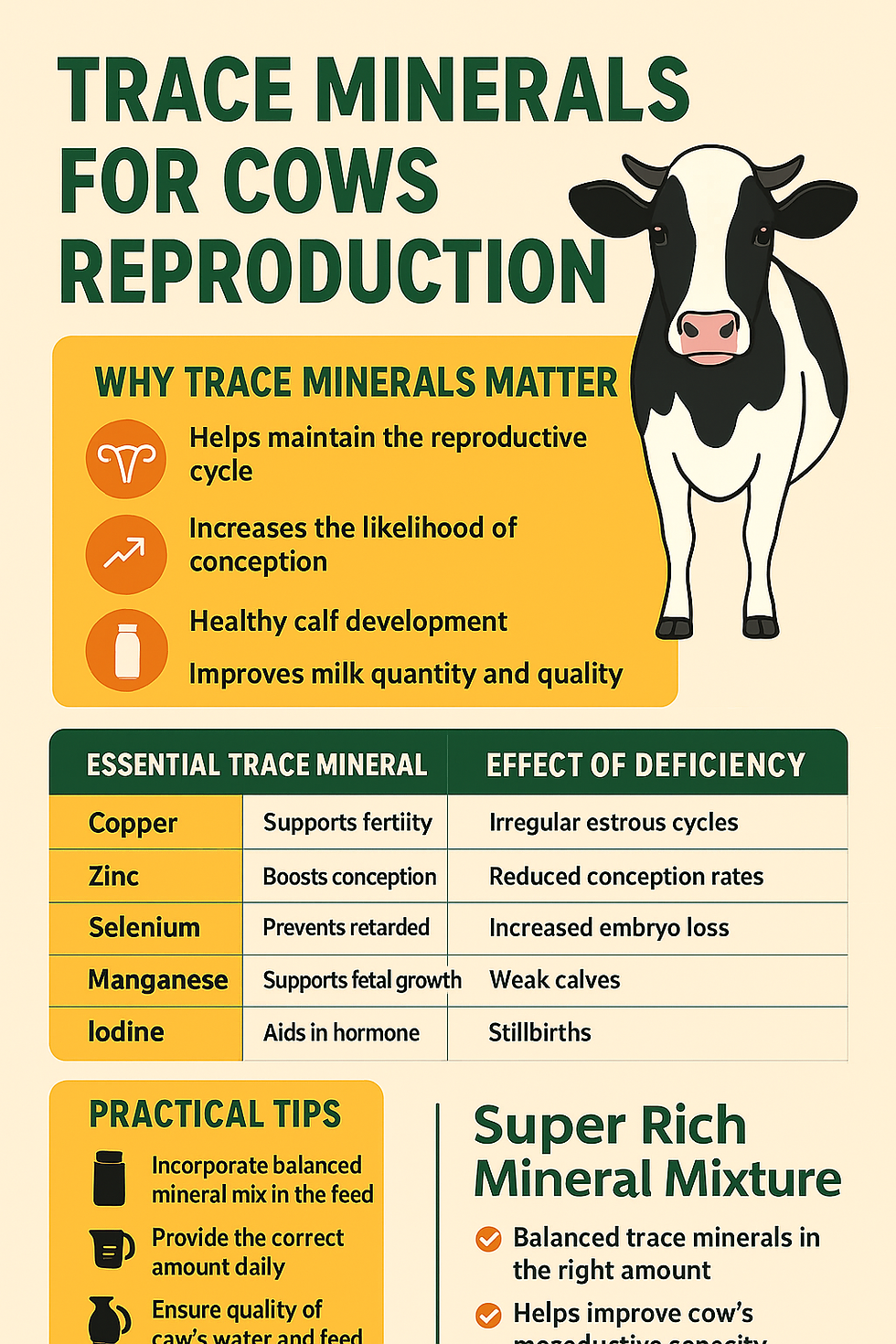DDGS for Human Consumption
- KafilaAgro CattleFeed
- Jun 7, 2024
- 3 min read
Distillers Dried Grains with Solubles (DDGS) are nutrient-rich byproducts of ethanol production, predominantly from corn. Traditionally used in animal feed, DDGS is gaining recognition for its potential as a human food ingredient. The benefits of corn-based DDGS as a wheat replacement, its nutritional advantages, and recent advancements in making it suitable for human consumption.
Nutritional Profile of DDGS
Nutrient | DDGS (Corn-Based) | Wheat |
Protein Content | 30%- 50% | 10-13% |
Fiber Content | 30%-40% | Lower than DDGS |
Carbohydrates | 11%-15% | Higher than DDGS |
Micronutrients | Rich in B vitamins, phosphorus, magnesium | Various vitamins and minerals |
Benefits of DDGS Over Wheat
Higher Protein Content: DDGS contains 30%-50% protein compared to wheat's 10-13%.
Rich in Dietary Fiber: One cup of DDGS provides 30g of fiber, much higher than wheat.
Nutrient Density: DDGS is rich in Vitamin E, polyunsaturated fatty acids, antioxidants, and carotenoids.
Health Benefits: Ferulic acid in DDGS helps reduce body fat, liver cholesterol, and improve glucose control.
Sustainability: DDGS utilization supports waste reduction and promotes a circular economy.

Recent Advancements: Edible DDGS
Researchers, particularly from Minnesota Corn, have enhanced DDGS palatability and safety, making it viable for human food products. The FDA has approved DDGS for human consumption since 1992, provided it meets hygiene standards.
Applications in Human Food
Application | Potential Use |
Baked Goods | Bread, muffins, etc. |
Snack Foods | High-protein snacks, bars |
Cereals and Granolas | Breakfast cereals, granola |
Use of DDGS in India
Current Usage: Primarily in animal feed (poultry, aquaculture).
Regulations: Must comply with FSSAI standards for human consumption.
Potential: Growing health consciousness and sustainability focus could increase DDGS adoption in human diets.
Conclusion
Corn-based DDGS, with its high protein and fiber content, nutrient density, and sustainability benefits, is a promising alternative to wheat. Research and development are paving the way for DDGS to become a staple in human diets, contributing to a healthier and more sustainable food future. In countries like India, DDGS has the potential to significantly impact human nutrition and food security.
Embracing DDGS as a dietary component supports nutritional needs and sustainable agricultural practices, making it a win-win solution for health and the environment.
FAQs on DDGS for Human Consumption
1. What is DDGS?
Distillers Dried Grains with Solubles (DDGS) are the nutrient-rich byproducts of the ethanol production process, primarily derived from corn. After the starch in the corn is fermented to produce ethanol, the remaining components – protein, fiber, oils, and micronutrients – are concentrated to form DDGS.
2. How is DDGS different from wheat?
Feature | DDGS (Corn-Based) | Wheat |
Protein Content | 36.4% | 10-13% |
Fiber Content | 40.4% | Lower than DDGS |
Carbohydrates | 11.8% | Higher than DDGS |
Micronutrients | Rich in B vitamins, phosphorus, magnesium | Various vitamins and minerals |
3. What are the nutritional benefits of DDGS?
High Protein: Contains 36.4% protein, excellent for muscle growth and repair.
Rich Fiber: Provides 40.4% dietary fiber, aiding in digestive health.
Micronutrients: Packed with essential vitamins and minerals, including higher levels of Vitamin E compared to corn.
Health Benefits: Contains ferulic acid, which helps reduce body fat, liver cholesterol, and improve glucose control.
4. Can DDGS be used in human food products?
Yes, DDGS can be used in various human food products such as:
Baked Goods: Bread, muffins, etc.
Snack Foods: High-protein snacks, bars, crisps.
Cereals and Granolas: Enhances nutritional profiles of breakfast cereals and granolas.
5. Are there any advancements in making DDGS suitable for human consumption?
Researchers, particularly from Minnesota Corn, have developed processes to improve the taste, texture, and safety of DDGS, making it suitable for human consumption. Since 1992, the FDA has approved DDGS for unrestricted use in human food, provided it meets basic hygiene standards.
6. What are the regulations for DDGS in India?
Current Usage: Primarily used in animal feed.
Regulations: Must comply with Food Safety and Standards Authority of India (FSSAI) standards for human consumption, ensuring safety and hygiene.
Potential: Increasing health consciousness and sustainability focus in India could lead to greater adoption of DDGS in human diets.
7. How sustainable is DDGS compared to wheat?
Using DDGS supports waste reduction from ethanol production and promotes a circular economy, offering a sustainable alternative to traditional crops like wheat, which require significant agricultural resources.
8. What are some specific health benefits of consuming DDGS?
DDGS is rich in polyunsaturated fatty acids, antioxidants (e.g., phenolic acids, ferulic acid), and xanthophyll, a carotenoid that can decrease the risk of heart disease and macular degeneration. Ferulic acid in DDGS has been shown to reduce body fat, lower liver cholesterol, improve insulin resistance, and enhance glucose control.
9. Is DDGS safe for human consumption?
Yes, DDGS is safe for human consumption when produced from grains suitable for human use and manufactured in facilities meeting hygiene standards. Stringent quality control measures are in place to ensure safety and nutritional adequacy.
10. How can DDGS contribute to global nutrition?
With its high protein and fiber content, DDGS can play a significant role in enhancing global nutrition, particularly in regions where protein and fiber intake are insufficient. Its use supports sustainable agricultural practices and promotes a healthier and more sustainable food future.
Contact Information:
Office Address: GT Road, Deona, Begusarai, Bihar
Factory Address: Industrial Area, Sant Kabir Nagar, Khalilabad (UP) Contact Number: +91-6201001535
Explore the benefits of Kafila Pashu Aahar and ensure the optimal care and nutrition for your cattle.


